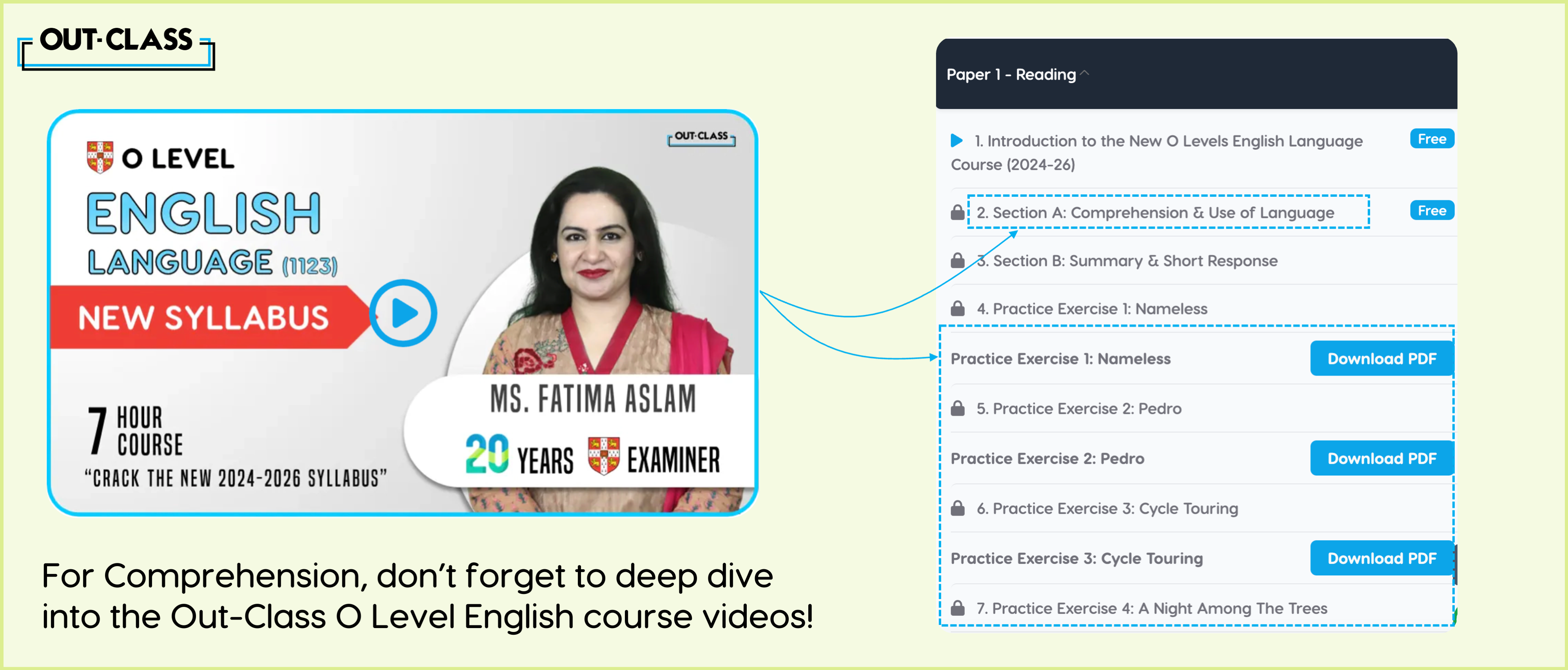Have you ever heard the phrase "reading between the lines"? It sounds weird. But worry not, it's not as complicated as it seems.
It's a tool that can be quite fun and useful, especially for students like you who are navigating through your IGCSE and O Level English exams. So, let's dive in and unravel this intriguing skill!
What Does “Reading Between the Lines" Mean?
First things first, what even is "reading between the lines"?
Imagine you're reading an essay, and words written on the pages - these are obvious "lines." But most of the time, the real message or meaning is not in those words or lines. It's hidden, implied, or even suggested. It's like a secret message that's not directly said but is still there for you to discover. That is what reading between the lines is all about!
A Source of Encouragement.
When someone says read between the lines, they are encouraging you to look beyond the obvious. It is when reading between the lines is helpful.
It means you attempt to understand the deeper or hidden meaning in a conversation, a piece of writing, or even someone's actions. It is not just about what is being said or shown; it's about what is not being shown but is still quite significant. So, reading between the lines is helpful.
What is Reading Between the Lines Called?
This skill of discovering hidden meanings is referred to as "inference." It's like being a detective in a mystery. You gather clues (the words you read) and then infer what these clues mean on a deeper level. So, reading between the lines is called inference or just being a detective. These detective skills make your grade go from a B to a direct A.
Examples of what Reading Between the Lines
To further assist you remember the following handy tips and just come back and look at them every time you want to implement reading between the lines in your own writing:
- Leave hints and clues for readers to piece together:
For instance, instead of saying, "John was nervous," describe his actions and body language, like "John's hands trembled as he fumbled with his tie." - Use tone, symbols and metaphors to imply deeper meanings or themes.
For example, a storm in a story might represent internal turmoil or approaching conflict. - Write in a way that interprets words on multiple levels.
It could be through ambiguous situations, dialogue with double meanings, or actions of several interpretations. - Drop subtle hints about future events or revelations. (Foreshadowing)
It adds a suspense element and allows astute readers to predict or anticipate what might happen next, based on hints. - Instead of overtly stating the theme, weave it into the narrative through events, dialogues, and characters' actions. Let your readers conclude the theme based on the story's progression.
- Sometimes, not wrapping up every storyline or answering every question can be powerful.
It allows readers to think and interpret the endings or unanswered questions in their own way. - Use unreliable narrators.
Unreliable narrators can make the readers question and think critically about the presented information, encouraging them to read between the lines to discern the truth. - Write dialogues that imply more than what is said.
The way characters speak to each other, their choice of words, and what they omit can all suggest underlying tensions, relationships, or issues.
While it's important to show action and emotions through scenes and dialogue, a little bit of telling can also provoke thought. It’s about finding the right balance.
Conclusion
Reading between the lines is a valuable skill for your O Level & IGCSE English exam and life in general. It helps you understand both people and situations better. It might seem challenging initially, but with practice, you'll soon become a pro at uncovering those hidden messages. So, next time you're reading a book, scrolling on social media, talking to a friend, or watching a movie, try to look a little deeper. You might be surprised at what you find!
For Comprehension, don't forget to deep dive into the Out-Class IGCSE and O Level English course videos!



